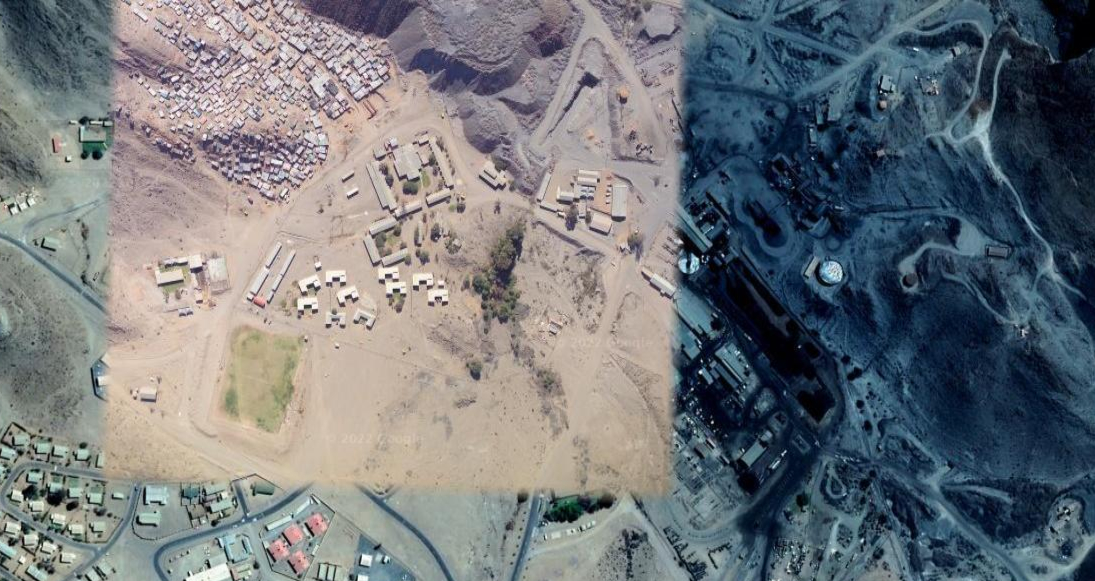With the African Development Bank (AfDB) having recently launched a fresh off-grid renewables drive that will require private-sector backing, a company in Namibia has joined the list of privately-owned miners which are installing solar panels.
A 5.4MW solar site will be constructed at the Rosh Pinah zinc and lead mine in the Karas region of southern Namibia to supply energy to Rosh Pinah Zinc Corp, according to the state-owned Development Bank of Namibia (DBN) which announced it has financed the solar park.
pv magazine reported in April that the Canadian company which owns the mine, Trevali Mining Corp, had signed a power purchase agreement related to the solar park. A Rosh Pinah Zinc Corporation (Pty) Ltd business listed on LinkedIn is a warehousing company based in the same region as the mine and pv magazine has asked Trevali whether it is connected to Rosh Pinah Zinc.
As part of pv magazine’s UP Initiative, we have focused on raw material sourcing in the energy storage industry. Read about material sourcing for batteries, lithium extraction in Chile, cobalt from the Congo, and the development of raw material recycling, and contact up@pv-magazine.com to find out more.Raw material sourcing
The solar project was announced on Saturday by the DBN, which said it had provided an unspecified amount of finance for the facility. The DBN did not reveal how the finance was structured for a solar project which is backed by a 15-year power purchase agreement, with the amount the energy offtaker will pay for the solar electricity also not mentioned.
The DBN press release, issued after the finance arrangement was signed on Friday, stated only that the solar project takes to almost NA$1.04 billion (US$67.5 million) the amount the state development bank has invested in renewable energy, as part of a commitment to back 13 clean energy projects with 87.9MW of total generation capacity.
The Rosh Pinah Solar Park is being developed by the local unit of South African renewables company Emesco Energy and will be constructed by Windhoek-based civil engineer Otesa Energy Projects. Those two businesses will own and operate the solar park with Otesa holding a majority stake, according to the DBN.
Popular content
The bank said the solar panels would generate enough electricity to meet Rosh Pinah Zinc's power needs over the next 15 years as it expands operations. The facility will also help address a national deficit in generation capacity which, in December, saw Namibia generate 89GWh of electricity while importing 264GWh from neighboring South Africa and the Southern African Power Pool, which spans state utilities across 13 regional neighbors.
The DBN said the Rosh Pinah park is the second project financed under its climate adaptation facility.
Further north, the AfDB has pledged US$164 million to its new leveraging energy-access-finance framework (LEAFF), to speed the deployment of solar home systems, renewables-powered mini grids, and off-grid commercial and industrial solar arrays in Ghana, Guinea, Ethiopia, Kenya, Nigeria, and Tunisia.
Private sector
The multilateral lender hopes to trigger private-sector investment in the program – including from commercial banks in the nations concerned, and in local currencies – for a total US$800 million of cheap loans to finance the off-grid solar systems.
The AfDB is essentially on-lending the money after the UN-established Green Climate Fund helped it develop the LEAFF initiative and provided US$171 million in low-cost loans for the idea in July.
Announcing the program, the AfDB said six million people and businesses would get access to electricity over the six years of the LEAFF scheme.
This content is protected by copyright and may not be reused. If you want to cooperate with us and would like to reuse some of our content, please contact: editors@pv-magazine.com.



3 comments
By submitting this form you agree to pv magazine using your data for the purposes of publishing your comment.
Your personal data will only be disclosed or otherwise transmitted to third parties for the purposes of spam filtering or if this is necessary for technical maintenance of the website. Any other transfer to third parties will not take place unless this is justified on the basis of applicable data protection regulations or if pv magazine is legally obliged to do so.
You may revoke this consent at any time with effect for the future, in which case your personal data will be deleted immediately. Otherwise, your data will be deleted if pv magazine has processed your request or the purpose of data storage is fulfilled.
Further information on data privacy can be found in our Data Protection Policy.